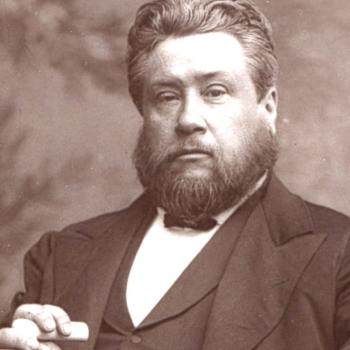JOLLYBLOGGER has a helpful contribution to our debate on the charismatic view of prophecy. He explains Grudem’s view of NT prophecy and why he doesnt quite believe it. He concludes:
“When we call something ‘prophecy’ that is really my own interpretation of some spontaneous impression we are giving a greater weight to that impression/interpretation than it can carry. The same applies when we use phrases like ‘God told me.’ Calling my own spontaneous (and subjective by the way) impressions prophecy escalates them in certainty and authority. There is a world of difference in the statements ‘I think God may be leading me,’ and ‘God told me.’ There is a world of difference in saying ‘I have an impression that I ought to do so and so,’ and ‘I have received a word of prophecy.’ In both of those examples, the first statement identifies me as the speaker and the latter identifies God is the speaker. If I use the first kinds of statements there is no authority to them, they are not binding, it is up to me whether or not I act upon them, and there is no harm no foul if it turns out my impression was wrong (unless I act on it unwisely). If I use the second kind of statement there is a binding authority to them which I must act upon.
And so I won’t begrudge my charismatic friends their spontaneous impressions. I have met people who tell me of spontaneous impressions they have received and acted upon to great benefit, and I praise God for that. I have met others who regularly have spontaneous impressions that are completely off base and sometimes ludicrous, yet they believe them with all their heart because they are sure they are words from God, words of prophecy. But when you have your spontaneous impression, please just call it a spontaneous impression, not a word from God or a prophecy. “
I can certainly see his point to a degree. I do feel that us charismatics need to be careful not to rely too heavily on our prophetic impressions. But, I am not quite convinced he has debunked the notion I have put forward that NT prophets are not always 100% infallible. It is of note that the scriptures urge us to judge individual prophecies not the prophet. Thus, it is possible to have a mistaken prophecy which is either totally wrong or at least wrong in most if not all of the details. That does not a false prophet make in my humble opinion.
If we ever get onto speaking about Apostles, then I suspect we will have a similar discussion. Should we speak of apostles today who carry out the non-scripture-writing function of the apostles in the new testament? I would say we should. No doubt many would say, there are people who do similar work to the appostles but instead lets call them something else.
Its funny how many of my cessationist brothers are happy to call someone an apostle or prophet after they have died, just not while they are a live. Martyn Lloyd-Jones, Spurgeon, Whitefield, Wesley etc are often described as Apostles or prophets of their times…….
The cessationist who concerns me is the one who does not believe that there is any sense in which we have a relational experience of God today. I beleive the bible promises a gift of the holy spirit which has not been rescinded and which causes us to know Gods work in our lives experientially. If any of my cessationist friends wish to dispute that, it concerns me a whole lot more than what we want to call our fallible impressions.
Meanwhile elsewhere, Shawn seems to hold to the jollyblogger line – accepting of impressions but reluctant to call them prophecy since he believes prophecy to be infallible.
Blogotional has a great post which will get almost the last word of this post :
Why are most of us reformed types so afraid of the Holy Spirit……..I more than anyone know the dangers of charismatic thought run amuck — I have seen it result in literal death, to people I love dearly…..What upsets me so about this issue is that the best way to fix the problem is not in picking sides but in fusing them. Sound doctrine is the best way to keep charismatic experience in check and charismatic experience is the best way to keep the reformed from becoming lifeless, or worse legalist……..A fully cessasionist viewpoint simply denies reality — there is too much experiential evidence to the contrary, but experience alone is a dangerous thing. Denial of the experience is; however, equally dangerous.
It is not purely coincidental that virtually everthing that is wrong in the reformed/evangelical movement is not wrong in the charismatic movement and vice-versa. Such tells me that the truth and a genuine faith lies in the middle, not in picking one or the other, or in failing to pick.
People like me who cry out for convergence in our time, with each of us seeking to learn the best from one another will rejoice to read a post like that.












